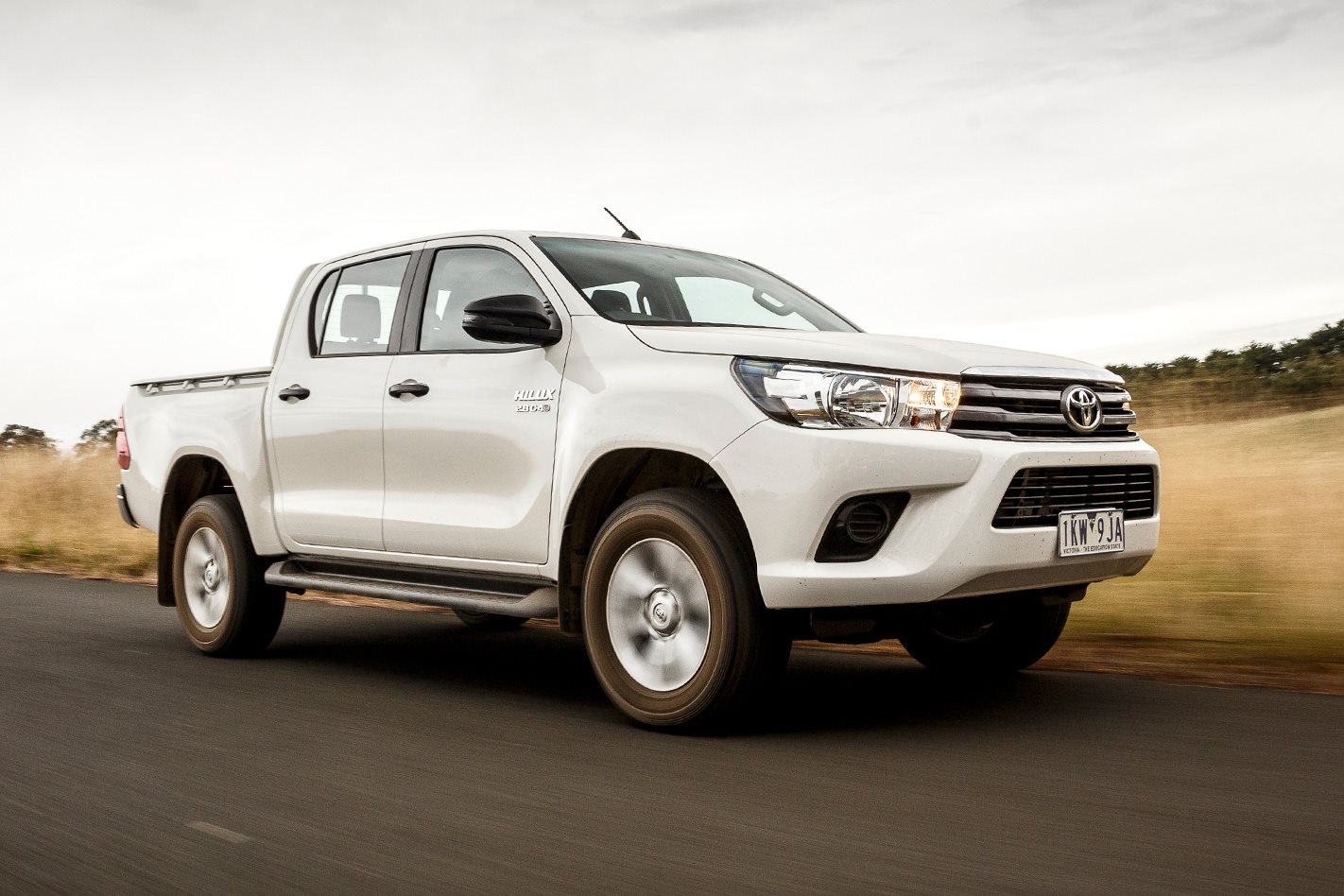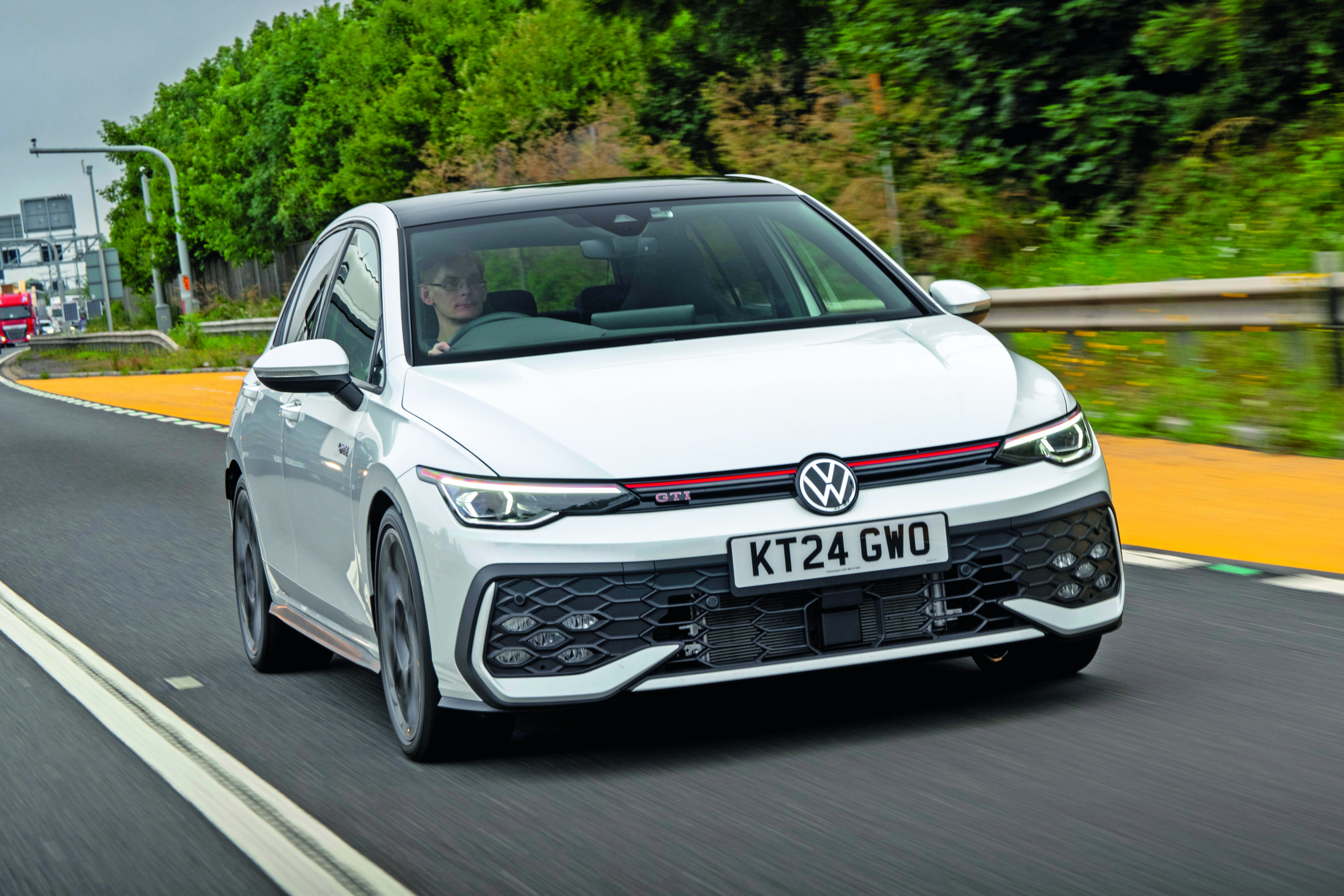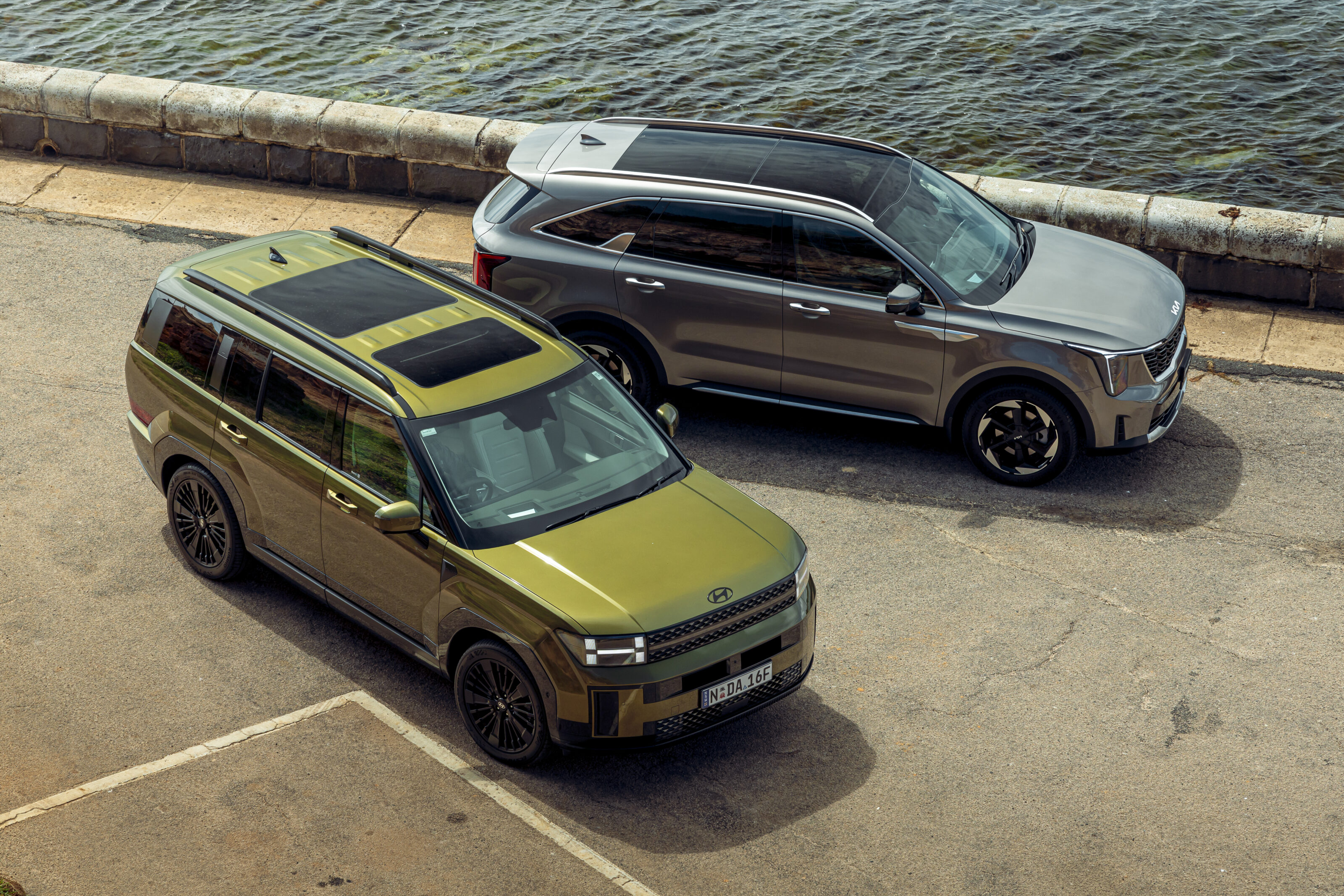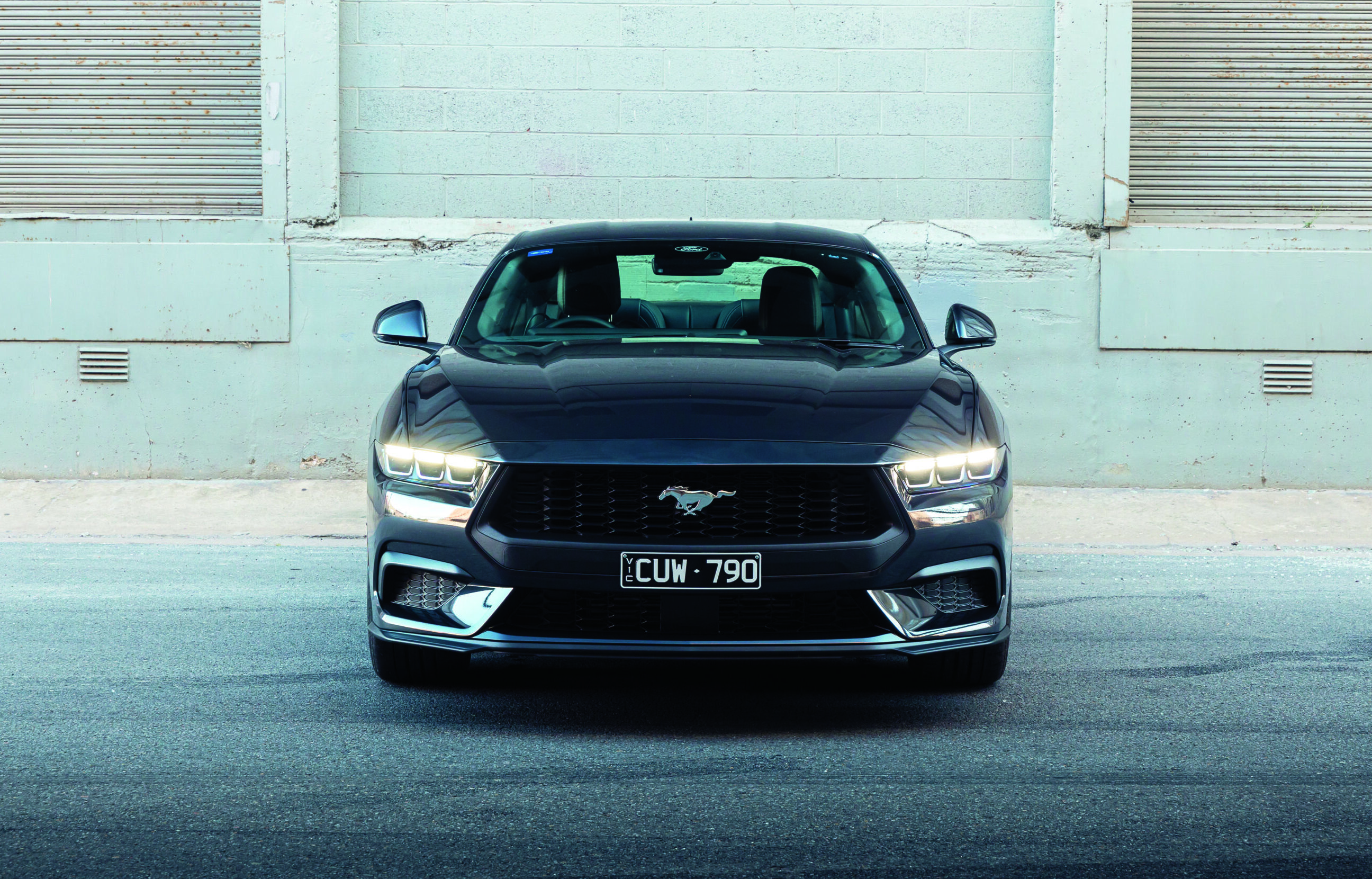Here’s a tip for the easily offended: you do not want to be around tester Byron Mathioudakis when he starts uttering the ‘C’ word. At least not if you’re a Toyota executive. No, we’re not talking about that ‘C’ word. Actually, it’s one potentially even more offensive: ‘cynical’.
That was Byron’s succinct summation of the Hilux, tested here in $48,560 SR spec (with optional alloys), although we wanted the SR5 for this exercise, which, at $56,440, adds equipment such as climate control, sat-nav, keyless entry, 18-inch wheels and more.
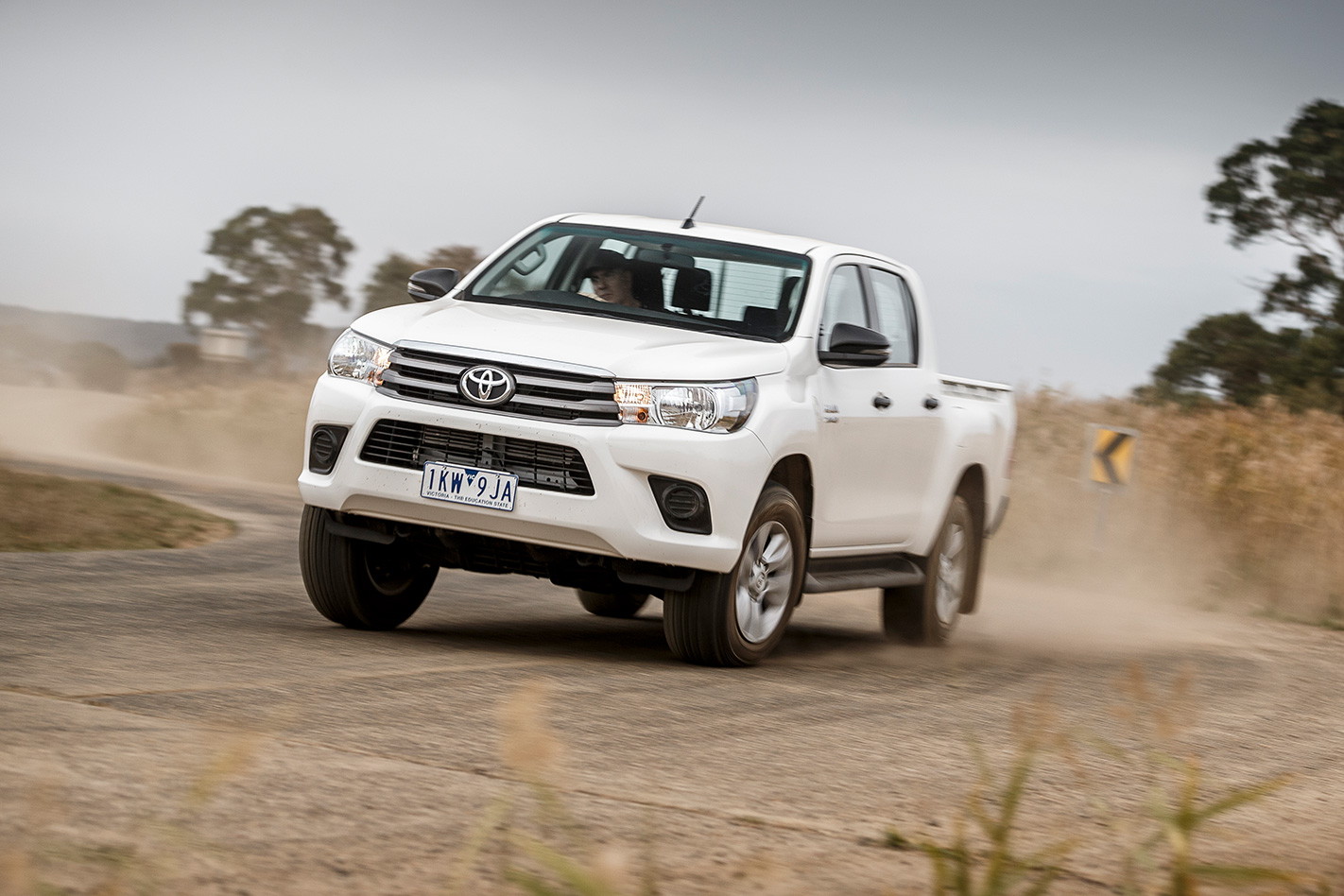
Yes, the huge-selling Hilux has a bunch of virtues, which we’ll get to, but the inescapable facts are these: it’s slow, lacks refinement, and has a suspension tune that delivers a ride about as comfortable as saddling up on one of those pro-bull-riding beasts.
“It feels like the last of the old, truly cynical Toyotas that buyers buy blindly,” said Byron. “It reeks of mediocrity, rather than any real need to be properly competitive, and lacks desirability beyond its off-road cred and nameplate cachet.”
Anyone who takes their T-logoed blinkers off will find this impossible to argue. The driving position is flawed for taller drivers, thanks to the feeble reach adjustment of the wheel leaving it too far away when the seat is slid sufficiently back from the pedals. The absence of a digital speedo grates, as does the lack of an audio volume knob, though the seats themselves are quite good and the fabric is fine.
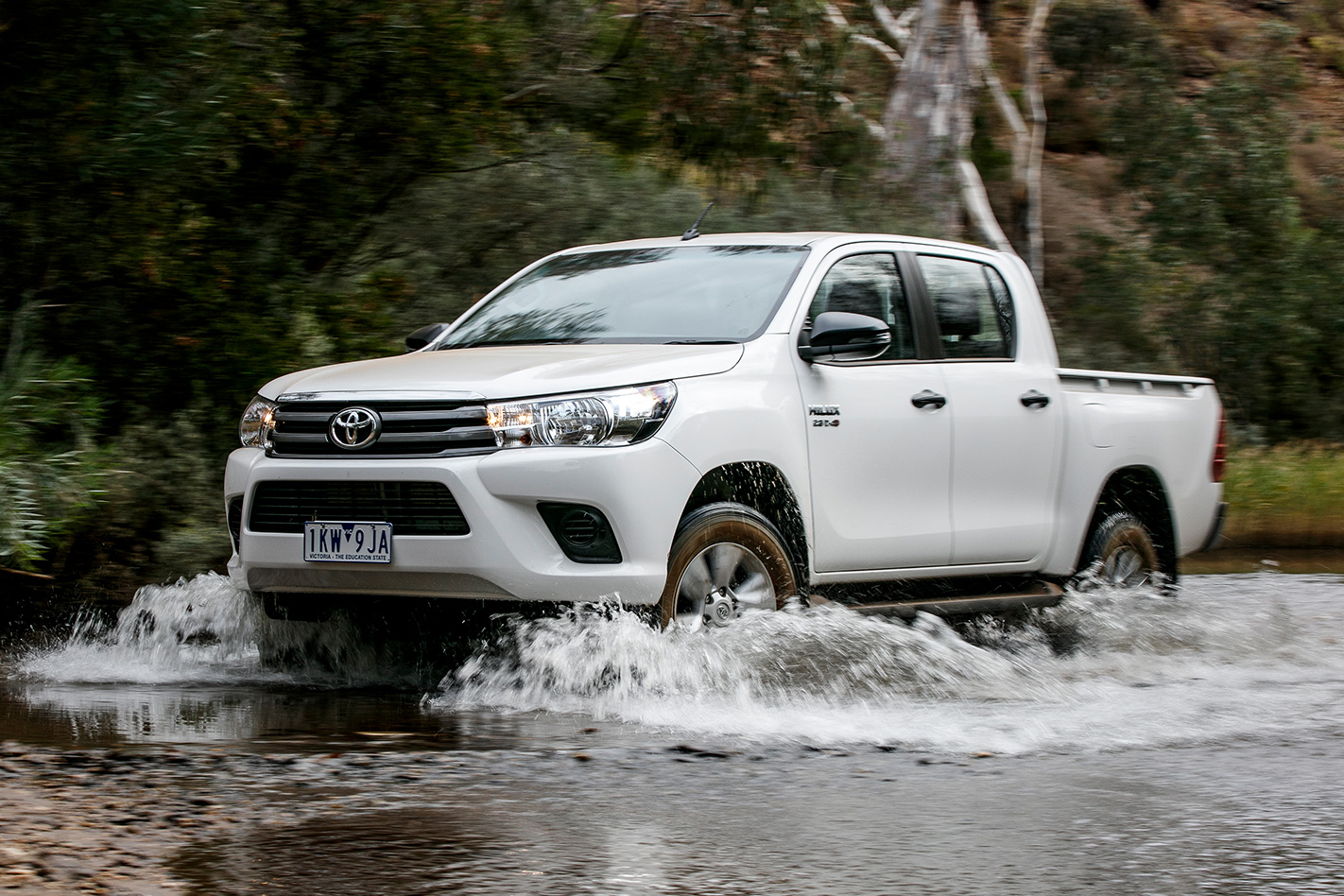
Fire up the diesel and the lack of NVH development becomes obvious. While the likes of the Holden have improved significantly since our last 4×4 outing, the Toyota has stagnated, and the engine feels a gruff old nail of a thing in contemporary context. It grunts up early, but quickly turns breathless and raucous. Peak power is at 3400rpm, and while it will upshift beyond that, it comes with an unpleasant resonance, and no discernible extra forward thrust.
There’s nothing too wrong with the transmission apart from the fact it’s two ratios short of the standard-bearing Amarok, and one short of the X-Class and Navara, to the detriment of both acceleration and frugal cruising. On the former, the Hilux is the slowest of this group to 100km/h (11.2sec) and around a second slower than even the mid-fielders in the important 80-120km/h overtaking discipline. All of which does nothing for its economy. At 10.9L/100km, it only drank 0.3L/100km less than the rapid V6 Amarok on this test.
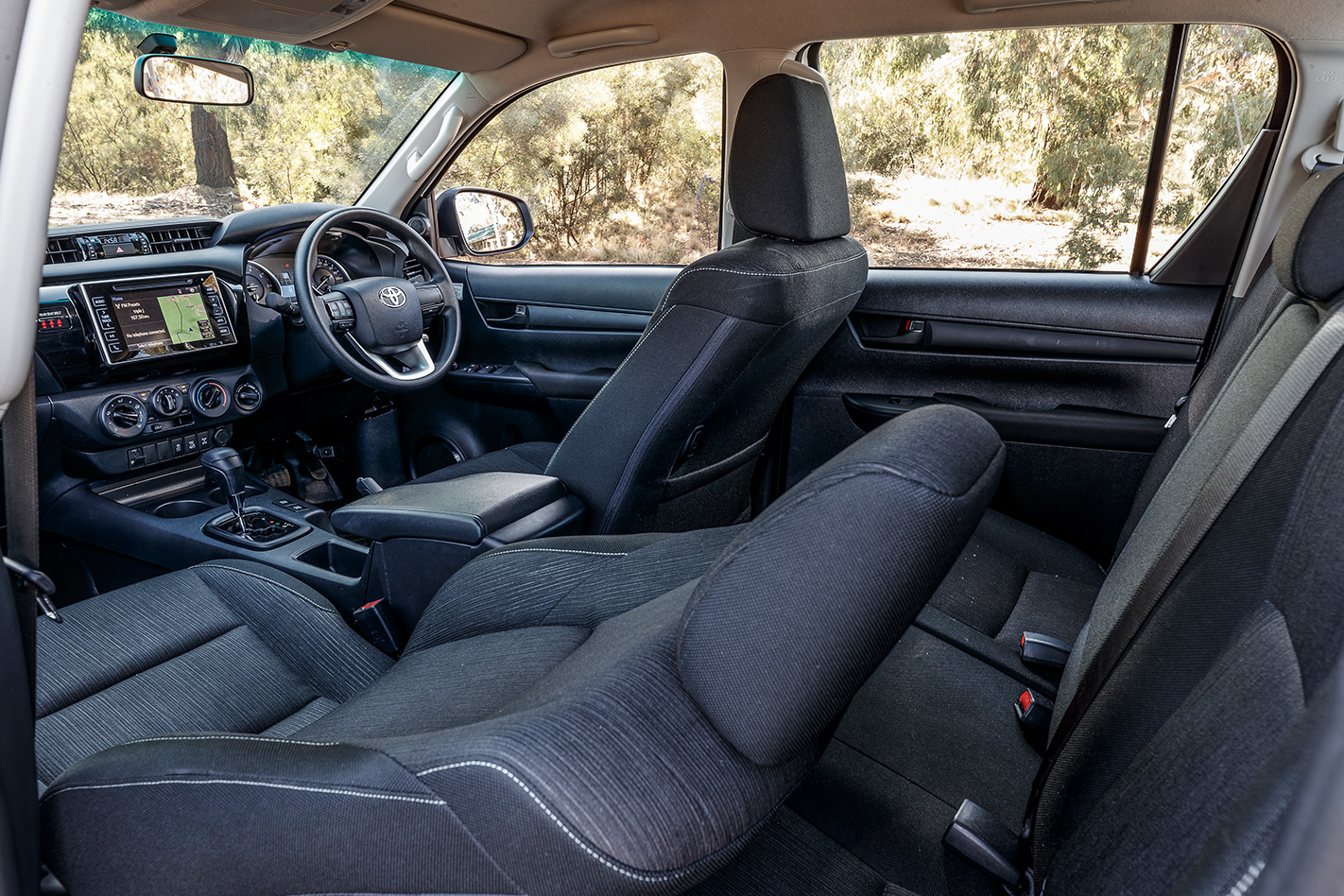
At least the Hilux steers reasonably, even if the slow gearing means plenty of wheel turning in tight off-road situations. It’s better at speed where it feels relaxed and reassuring. “Gives a sense that it’s been tuned to feel stable and confident no matter what the surface,” commented Byron. But that unloaded ride can become exhausting over a long drive on lumpy surfaces. Drive it quickly and either the agitation of the rear end will slow you down, or the howling of the 17-inch Dunlop Grand Trek tyres will.
So what about the those virtues? Well, anecdotally, a Hilux is more unkillable than Keith Richards, and if you do have a problem somewhere remote, you will no doubt have a better chance of having it sorted in a Toyota than any other brand. Then there’s the excellent off-road ability delivered in part by its exceptional rear wheel articulation (520mm) and very effective traction control.
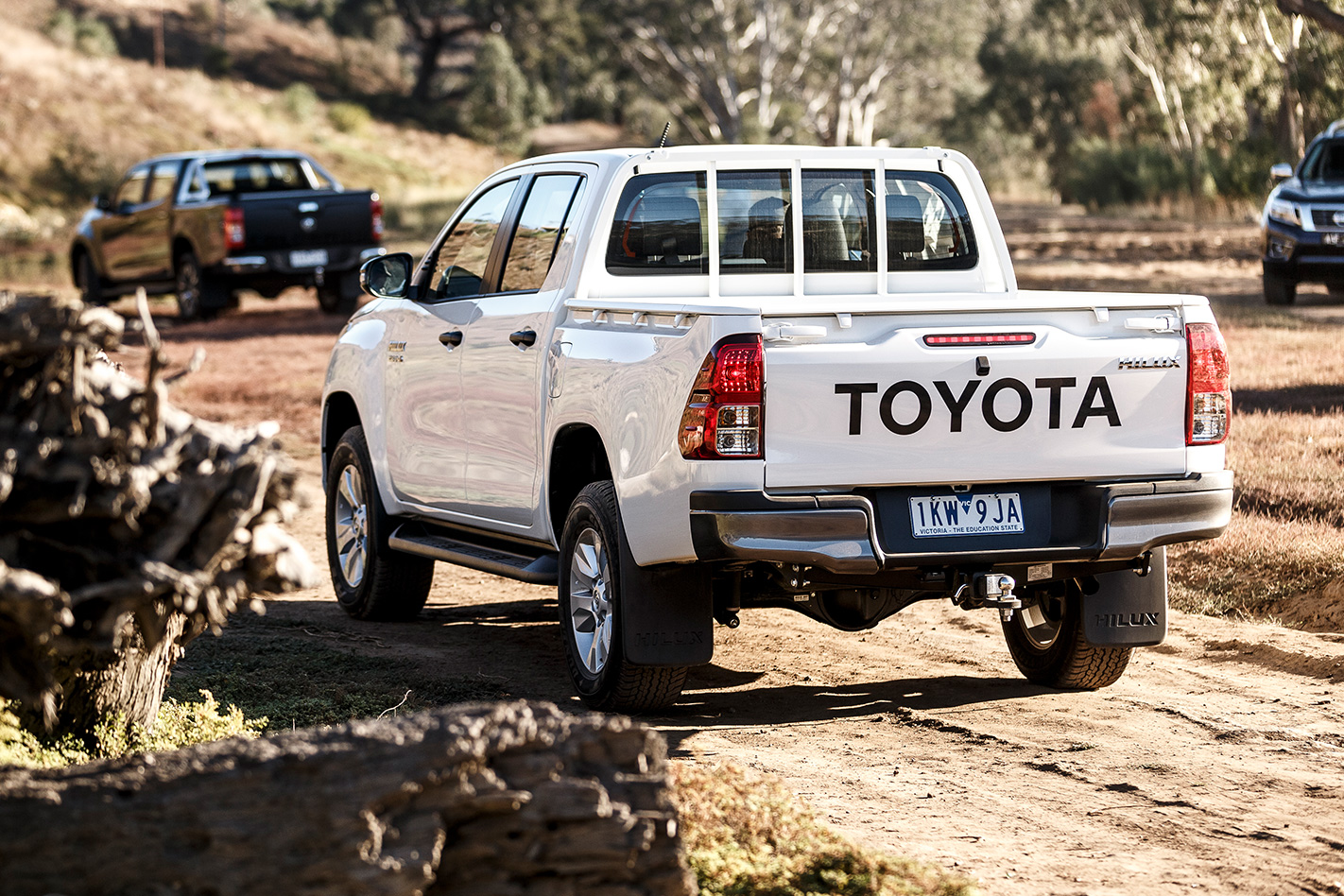
Its chassis is also very capable with big loads, even if its powertrain is less enthused by them. And of course there’s the general no-fuss functionality, from things like the split-level glovebox to the basic, bulletproof HVAC system in this SR spec. And let’s not forget the proven resale.
So if you can really look yourself in the mirror and not flinch when you say you need serious off-road ability, that you may need a dealer in the back of Wherethehellareya, then maybe the Hilux really is the logical choice. But don’t expect excellence. For all its virtues, there’s no escaping the fact that the Hilux feels to be riding along on a wave of complacency.
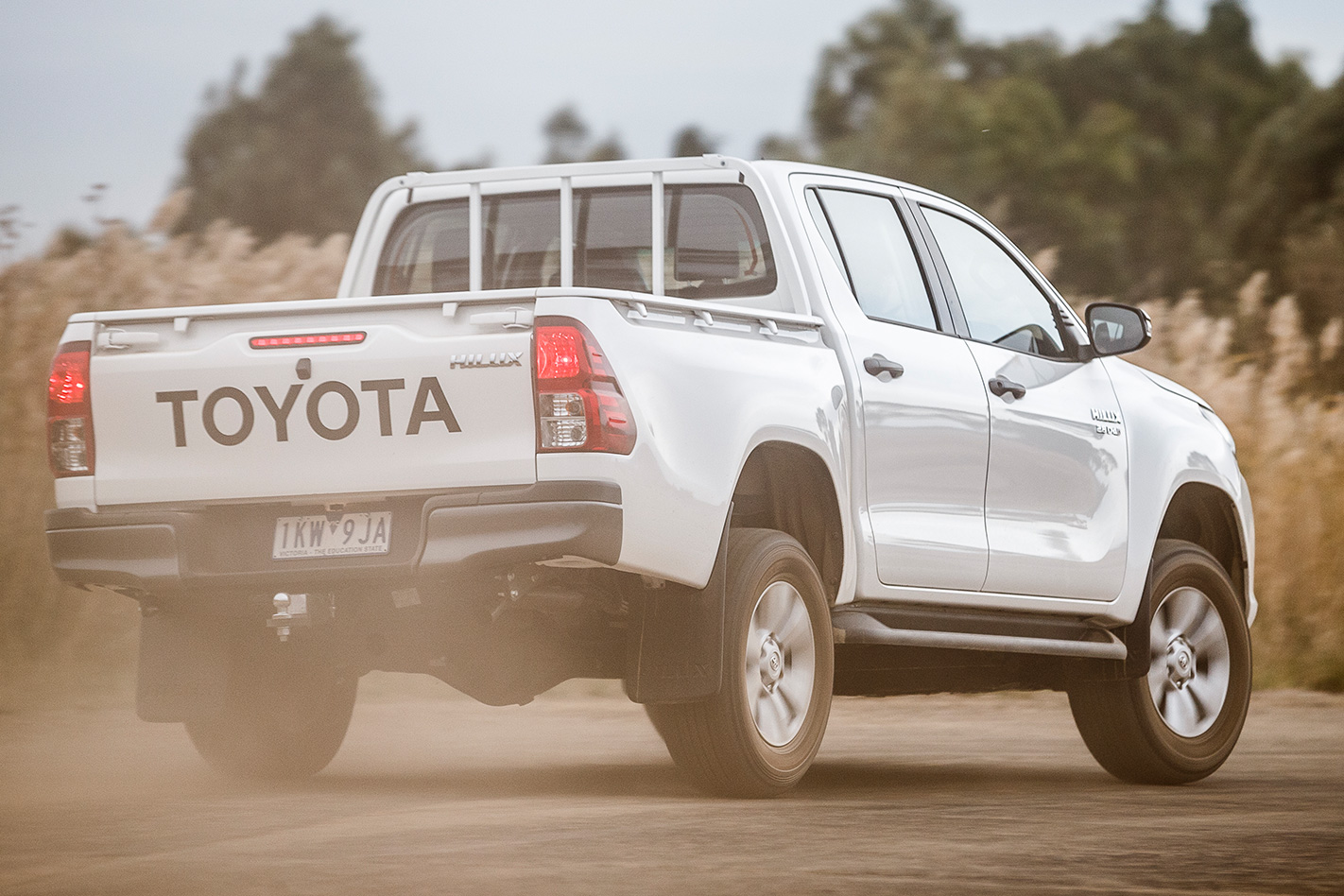
Bugger. Is that another C-word that we just slung in its direction?
SPECS
Price $48,560 Engine 2755cc 4cyl, dohc, 16v, TD Power 130kW @ 3400rpm Torque 450Nm @ 1600-2400rpm Transmission 6-speed automatic Dimensions (L/W/H/W-B) 5330/1855/1815/3085mm Weight 2045kg Tray capacity 920kg Braked towing capacity 3200kg Unbraked towing capacity 750kg Ground clearance 279mm Tyres Dunlop Grand Trek 265/65R17 Test fuel average 10.9L/100km 0-100km/h 11.2sec 80-120km/h 7.9sec 100km/h-0 44.5m
Need more info?
Read the Wheels Dual-Cab Ute Megatest Introduction
The Contenders
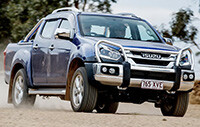 # 9 Isuzu D-Max LS-T
# 9 Isuzu D-Max LS-T
Rough ’n’ ready appeal pales when polished rivals are better at going bush too
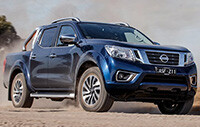 #8 Nissan Navara ST-X
#8 Nissan Navara ST-X
Tough and reliable aren’t enough as Navara wilts on price, spec and comfort
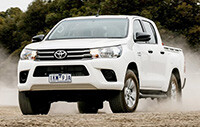 #7 Toyota Hilux SR+
#7 Toyota Hilux SR+
Unbreakable? Possibly. Unloveable? Sadly, yes, as mediocrity is allowed to prevail
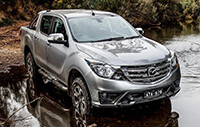 #6 Mazda BT-50 GT
#6 Mazda BT-50 GT
Still in the fight, but ultimately overshadowed by its high-flying fraternal twin
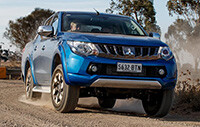 #5 Mitsubishi Triton Exceed
#5 Mitsubishi Triton Exceed
A strong and likeable mid-fielder where consistency and value are king
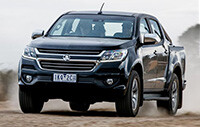 #4 Holden Colorado LTZ
#4 Holden Colorado LTZ
Colorado raises its game right when Holden needs a hero
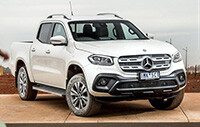 #3 Mercedes-Benz X250d
#3 Mercedes-Benz X250d
Arrives carrying great expectations; delivers only a modest load
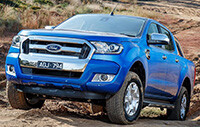 #2 Ford Ranger XLT
#2 Ford Ranger XLT
Continuous improvements make the only truly Australian-conceived ute world class
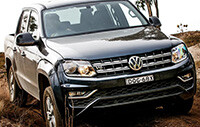 #1 Volkswagen Amarok V6 Sportline
#1 Volkswagen Amarok V6 Sportline
Quiet achiever doesn’t have youth on its side, but still shows how it should be done
MORE: Toyota Hilux Range Review MORE: Toyota Hilux Specs, Range & Price


